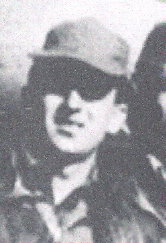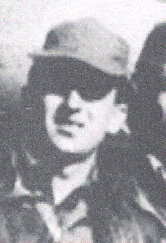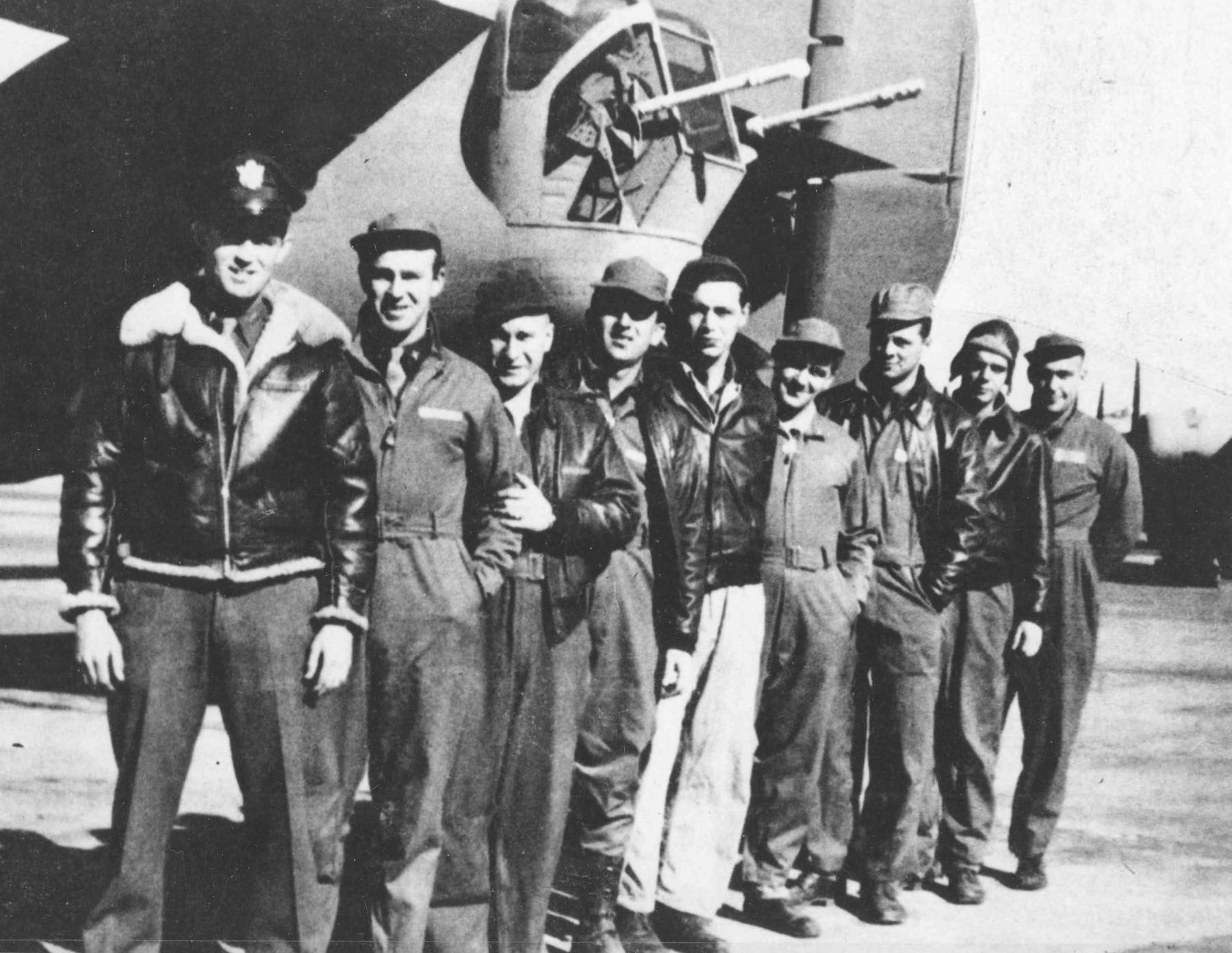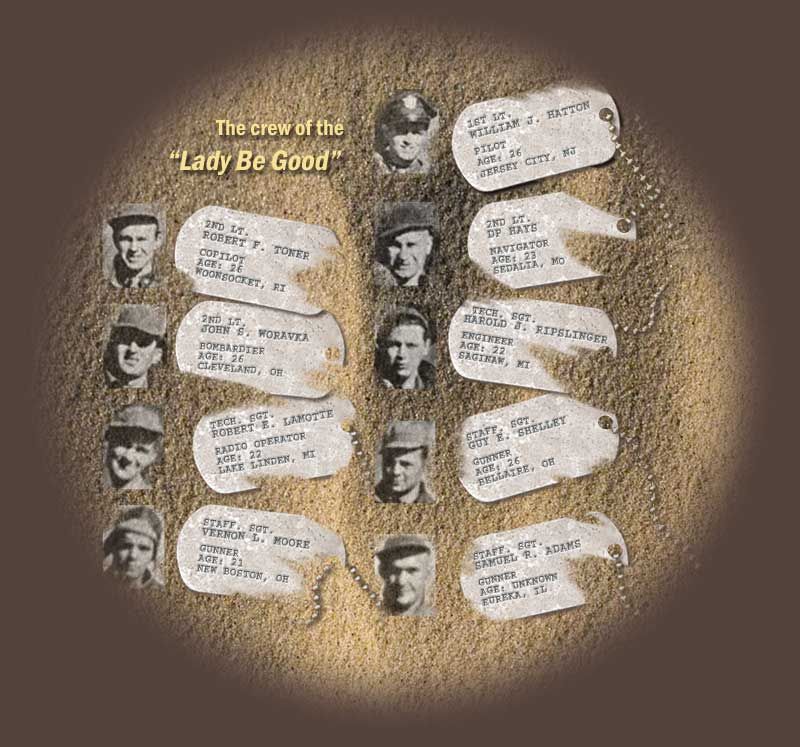The nearly intact Lady Be Good was discovered in the Libyan desert by an oil research company in 1959. The crew's remains were not discovered until early 1960.
ABMC record:
John S. Woravka
Second Lieutenant, U.S. Army Air Forces
Service # O-73112
514th Bomber Squadron, 376th Bomber Group, Heavy
Entered the Service from: Ohio
Died: April, 1943
Missing in Action or Buried at Sea
Tablets of the Missing at North Africa American Cemetery
Carthage, Tunisia
Remains recovered and buried at a private cemetery in Ohio.
The nine crew members of the B-24 Liberator bomber 'Lady Be Good' were:
1st Lieut. William J. Hatton, Pilot
Whitestone, New York;
2nd Lt. Robert Toner, Co-pilot
North Attelboro, Massachusetts;
2nd Lt. Dp Hays, Navigator
Kansas City, Missouri;
2nd Lt. John S. Woravka, Bombardier
Cleveland, Ohio;
T/Sgt. Harold S. Ripslinger, Flight Engineer
Saginaw, Michigan;
T/Sgt. Robert E. LaMotte, Radio Operator
Lake Linden, Michigan;
S/Sgt. Guy E. Shelley, Gunner/Asst Flight Engineer
New Cumberland, Pennsylvania;
Staff Sergeant Vernon L. Moore, Gunner/Asst Radio Operator
New Boston, Ohio;
S/Sgt. Samuel E. Adams, Gunner
Eureka, Illinois.
----------------------------------------------------------------------------
Poem by Robert Laurence Binyon (1869-1943), published in The Times newspaper on 21 September 1914.
With proud thanksgiving, a mother for her children,
England mourns for her dead across the sea.
Flesh of her flesh they were, spirit of her spirit,
Fallen in the cause of the free.
Solemn the drums thrill: Death august and royal
Sings sorrow up into immortal spheres.
There is music in the midst of desolation
And a glory that shines upon our tears.
They went with songs to the battle, they were young,
Straight of limb, true of eye, steady and aglow.
They were staunch to the end against odds uncounted,
They fell with their faces to the foe.
They shall grow not old, as we that are left grow old:
Age shall not weary them, nor the years condemn.
At the going down of the sun and in the morning
We will remember them.
They mingle not with their laughing comrades again;
They sit no more at familiar tables of home;
They have no lot in our labour of the day-time;
They sleep beyond England's foam.
But where our desires are and our hopes profound,
Felt as a well-spring that is hidden from sight,
To the innermost heart of their own land they are known
As the stars are known to the Night;
As the stars that shall be bright when we are dust,
Moving in marches upon the heavenly plain,
As the stars that are starry in the time of our darkness,
To the end, to the end, they remain.
The nearly intact Lady Be Good was discovered in the Libyan desert by an oil research company in 1959. The crew's remains were not discovered until early 1960.
ABMC record:
John S. Woravka
Second Lieutenant, U.S. Army Air Forces
Service # O-73112
514th Bomber Squadron, 376th Bomber Group, Heavy
Entered the Service from: Ohio
Died: April, 1943
Missing in Action or Buried at Sea
Tablets of the Missing at North Africa American Cemetery
Carthage, Tunisia
Remains recovered and buried at a private cemetery in Ohio.
The nine crew members of the B-24 Liberator bomber 'Lady Be Good' were:
1st Lieut. William J. Hatton, Pilot
Whitestone, New York;
2nd Lt. Robert Toner, Co-pilot
North Attelboro, Massachusetts;
2nd Lt. Dp Hays, Navigator
Kansas City, Missouri;
2nd Lt. John S. Woravka, Bombardier
Cleveland, Ohio;
T/Sgt. Harold S. Ripslinger, Flight Engineer
Saginaw, Michigan;
T/Sgt. Robert E. LaMotte, Radio Operator
Lake Linden, Michigan;
S/Sgt. Guy E. Shelley, Gunner/Asst Flight Engineer
New Cumberland, Pennsylvania;
Staff Sergeant Vernon L. Moore, Gunner/Asst Radio Operator
New Boston, Ohio;
S/Sgt. Samuel E. Adams, Gunner
Eureka, Illinois.
----------------------------------------------------------------------------
Poem by Robert Laurence Binyon (1869-1943), published in The Times newspaper on 21 September 1914.
With proud thanksgiving, a mother for her children,
England mourns for her dead across the sea.
Flesh of her flesh they were, spirit of her spirit,
Fallen in the cause of the free.
Solemn the drums thrill: Death august and royal
Sings sorrow up into immortal spheres.
There is music in the midst of desolation
And a glory that shines upon our tears.
They went with songs to the battle, they were young,
Straight of limb, true of eye, steady and aglow.
They were staunch to the end against odds uncounted,
They fell with their faces to the foe.
They shall grow not old, as we that are left grow old:
Age shall not weary them, nor the years condemn.
At the going down of the sun and in the morning
We will remember them.
They mingle not with their laughing comrades again;
They sit no more at familiar tables of home;
They have no lot in our labour of the day-time;
They sleep beyond England's foam.
But where our desires are and our hopes profound,
Felt as a well-spring that is hidden from sight,
To the innermost heart of their own land they are known
As the stars are known to the Night;
As the stars that shall be bright when we are dust,
Moving in marches upon the heavenly plain,
As the stars that are starry in the time of our darkness,
To the end, to the end, they remain.
Family Members
Sponsored by Ancestry
Advertisement
Records on Ancestry
Advertisement












